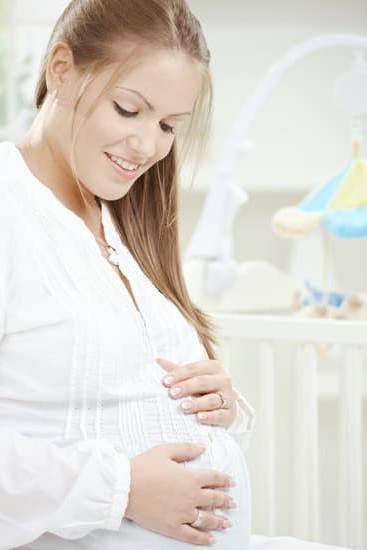Pregnancy tests are essential tools used to determine if a woman is pregnant or not, but have you ever wondered how long until a pregnancy test works? Understanding Pregnancy Tests: Types and How They Work is crucial for anyone looking to confirm their pregnancy status. There are different types of pregnancy tests available, including early detection tests and regular tests, each with its own set of features and functionality.
Early Detection Pregnancy Tests vs. Regular Pregnancy Tests: What’s the Difference? Early detection tests can detect pregnancy hormones in your urine earlier than regular tests, but they may be less accurate. On the other hand, regular pregnancy tests are more reliable after you have missed your period. Knowing when to use each type of test can help you get accurate results.
How Soon Can You Take a Pregnancy Test After Conception? It is recommended to wait at least one week after conception before taking a pregnancy test for accurate results. However, some early detection tests claim to provide results even before your missed period.
Factors such as the sensitivity of the test and timing of ovulation can affect the accuracy of the results. Be sure to follow the instructions on the test kit carefully and consult with your healthcare provider if you have any doubts.
Early Detection Pregnancy Tests vs Regular Pregnancy Tests
Technology and Sensitivity
One of the main differences between early detection pregnancy tests and regular pregnancy tests is their sensitivity levels. Early detection tests are designed to detect lower levels of the hormone hCG (human chorionic gonadotropin) in urine, which is produced during pregnancy. These tests can detect pregnancy much earlier than regular tests, sometimes even before a missed period. Regular pregnancy tests, on the other hand, may require higher levels of hCG to produce a positive result.
Accuracy and Reliability
In terms of accuracy and reliability, early detection pregnancy tests are generally considered more accurate when used correctly. Since they can detect lower levels of hCG, they have a higher chance of providing an accurate result in the early stages of pregnancy. Regular pregnancy tests are also reliable but may not be as sensitive as early detection tests, which can lead to false negatives if taken too early.
Cost and Availability
Another key difference between early detection and regular pregnancy tests is their cost and availability. Early detection tests tend to be slightly more expensive than regular ones due to their advanced technology and increased sensitivity. However, both types of tests are widely available at pharmacies, grocery stores, and online retailers. It ultimately comes down to personal preference and budget when choosing between an early detection or regular pregnancy test for determining if you are pregnant.
How Soon Can You Take a Pregnancy Test After Conception?
After conception, many women may be eager to confirm whether or not they are pregnant. The timing of when you can take a pregnancy test after conception largely depends on the type of test you choose. There are two main types of pregnancy tests available: urine tests and blood tests.
- Urine tests: These are the most commonly used at-home pregnancy tests. They work by detecting the presence of hCG (human chorionic gonadotropin) hormone in your urine. This hormone is produced by the developing placenta shortly after a fertilized egg attaches to the uterine lining. Most urine pregnancy tests claim to provide accurate results as early as 7-10 days after conception.
- Blood tests: These tests, also known as quantitative hCG blood tests, can detect even lower levels of hCG than urine tests and are generally more sensitive. A blood test can detect pregnancy earlier, typically about 6-8 days after ovulation or 1-2 days before an expected menstrual period.
It’s important to note that hCG levels vary from woman to woman and it takes time for the hormone to reach detectable levels in either urine or blood. Therefore, taking a pregnancy test too soon after conception may result in a false negative result. For more accurate results, it is advisable to wait until closer to when your period is due before taking a home pregnancy test if you want to increase the likelihood of receiving an accurate result.
Factors That Affect the Accuracy of a Pregnancy Test
When it comes to taking a pregnancy test, you want to ensure that you get accurate results. However, various factors can influence the accuracy of the test. One crucial factor is timing. The accuracy of a pregnancy test increases the closer you are to your missed period. Taking a test too early may result in a false negative, as the levels of the pregnancy hormone hCG may not be high enough to detect.
Another factor that can affect the accuracy of a pregnancy test is how well you follow the instructions provided with the test kit. Each brand may have specific guidelines on when and how to take their tests for optimal accuracy. Failing to follow these instructions correctly could lead to misleading results. It is essential to read and adhere to the instructions carefully before taking the test.
Furthermore, medications or medical conditions can also impact the accuracy of a pregnancy test. Certain medications, such as fertility drugs or those containing hCG, can interfere with the results of a pregnancy test. Additionally, certain medical conditions like ovarian cysts or ectopic pregnancies can cause false positives or negatives on a pregnancy test. If you have concerns about how these factors may affect your results, consult with your healthcare provider for guidance.
| Factors Affecting Pregnancy Test Accuracy | Importance |
|---|---|
| Timing | Crucial for accurate results; testing too early can lead to false negatives |
| Following Instructions | Failure to follow instructions correctly can result in misleading results |
| Medications and Medical Conditions | Certain medications and health conditions can interfere with pregnancy test accuracy |
How Long Should You Wait Before Taking a Pregnancy Test?
When it comes to the question of how long until a pregnancy test works, timing is crucial for accurate results. Most home pregnancy tests are designed to detect the presence of the hormone hCG (human chorionic gonadotropin), which is produced after a fertilized egg attaches to the uterine lining. However, it’s important to wait for the right moment to take a pregnancy test to avoid false negatives or positives.
Understanding Ovulation and Implantation
To determine how soon you can take a pregnancy test after conception, it’s vital to understand your menstrual cycle. Ovulation typically occurs around 14 days before your next period is due. If fertilization happens during this window, implantation usually takes place about 6-12 days after ovulation. It’s only after implantation that hCG starts to be produced in detectable levels, allowing for accurate results on a pregnancy test.
Recommended Waiting Period
While some early detection pregnancy tests claim to provide accurate results even before your missed period, waiting until at least a week after ovulation or a few days after your missed period is advisable for the most reliable outcome. Taking a test too early might result in a false negative due to low levels of hCG in your urine. By waiting longer, you increase the likelihood of getting an accurate result and avoiding unnecessary stress and confusion.
What to Do if Your Pregnancy Test Is Negative but You Missed Your Period
When you take a pregnancy test and receive a negative result, but you have missed your period, it can be confusing and concerning. There are several reasons why this might happen, such as testing too early, using a test with low sensitivity, or experiencing irregular cycles. In such cases, it is important to know what steps to take next.
If your pregnancy test is negative but you have missed your period, the first thing to consider is whether you may have taken the test too early. Pregnancy tests detect the hormone hCG in your urine, which is only present in significant amounts after implantation occurs. For most accurate results, it is recommended to wait at least one week after a missed period before taking a pregnancy test.
Another factor to consider is the sensitivity of the pregnancy test you used. Some tests are more sensitive and can detect lower levels of hCG earlier than others. It is essential to choose a reliable and sensitive test for accurate results. Additionally, if you have irregular menstrual cycles or ovulation, it may be challenging to determine when the best time to take a pregnancy test is.
It can also be helpful to track your cycle and ovulation patterns to understand better when conception might have occurred. If you continue to receive negative results on multiple tests despite missing your period, it may be beneficial to consult with a healthcare provider for further evaluation and guidance on potential reasons for the discrepancy between your symptoms and test results.
| Reasons for Negative Pregnancy Test Despite Missed Period | Steps to Take Next |
|---|---|
| Testing too early after conception | Wait at least one week after missed period before retesting |
| Using a low-sensitivity pregnancy test | Opt for a more sensitive and reliable test for accurate results |
| Irregular menstrual cycles or ovulation | Monitor cycle patterns and consider consulting with a healthcare provider |
Interpreting the Results
When it comes to interpreting the results of a pregnancy test, it is crucial to understand how to read them correctly. Whether you are using a traditional strip test, midstream test, or digital test, the process remains relatively similar. Here are some key points on how to interpret the results accurately:
- Read instructions carefully: Before taking the test, make sure to read the instructions provided with the kit thoroughly. Each type of pregnancy test may have slightly different guidelines for interpretation.
- Check the result window: Most pregnancy tests have a control line that indicates whether the test is working correctly. If this line does not appear, it could mean that the test is faulty and should be repeated with a new kit.
- Interpret the result within the designated time frame: Pregnancy tests have specific windows during which results should be read. Reading them too early or too late can lead to inaccurate results.
Additionally, understanding what each result means is essential. A positive result typically shows two lines – one in the control window and one in the test window indicating pregnancy. On the other hand, a negative result usually displays only one line in the control window signifying no pregnancy detected.
- A positive result should be confirmed with a doctor’s visit for further prenatal care and confirmation through blood tests or ultrasound.
- If you receive a negative result but suspect you might still be pregnant due to missed periods or other symptoms, it is recommended to wait a few days and retest.
- Always consult with your healthcare provider if you have any concerns about your pregnancy test results or if you experience unusual symptoms such as severe abdominal pain or heavy bleeding.
When to See a Doctor After Taking a Pregnancy Test
If you have taken a pregnancy test and received a positive result, congratulations may be in order. However, if the test comes back negative, it can be disappointing and confusing, especially if you have missed your period. But remember, this does not necessarily mean that you are not pregnant; the timing of the test could be a factor.
Typically, most pregnancy tests are accurate when taken about one week after a missed period. So if you have taken a test too early, you may want to wait a few more days before retesting.
There are instances where even if you have taken the test at the right time and it still shows up negative, but you experience other symptoms like nausea or breast tenderness, it is advisable to consult with your healthcare provider. Some women may receive false-negative results due to various reasons such as diluted urine or testing too early.
It’s best to follow up with your doctor for further evaluation and possibly another round of testing to confirm or rule out pregnancy.
In conclusion, knowing when to see a doctor after taking a pregnancy test is crucial for your health and peace of mind. If you suspect that you might be pregnant despite receiving a negative result or are experiencing symptoms like abdominal pain or heavy bleeding, it’s important to seek medical advice promptly.
Remember that every woman’s body is different and each pregnancy journey is unique so don’t hesitate to reach out for professional guidance on how long until a pregnancy test works accurately in your specific situation.
Frequently Asked Questions
How Soon Will a Pregnancy Test Read Positive?
A pregnancy test can read positive as early as 7-10 days after conception, but it is more accurate to wait until after you have missed your period. It’s essential to follow the instructions on the test for the most reliable result.
How Soon After Unprotected Can I Test for Pregnancy?
If you have had unprotected sex and suspect you may be pregnant, it’s best to wait at least 7-10 days before taking a pregnancy test for more accurate results. Testing too early may result in a false negative, so patience is key.
How Long Does It Take for a Pregnancy Test to Fully Develop?
The time it takes for a pregnancy test to fully develop depends on the type of test being used. Generally, most tests will show results within a few minutes. It’s crucial to read and follow the instructions provided with the test to ensure an accurate reading.

Welcome to my fertility blog. This is a space where I will be sharing my experiences as I navigate through the world of fertility treatments, as well as provide information and resources about fertility and pregnancy.





